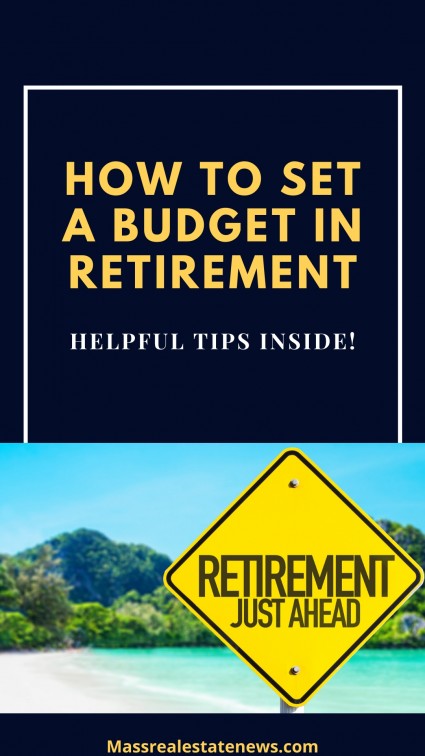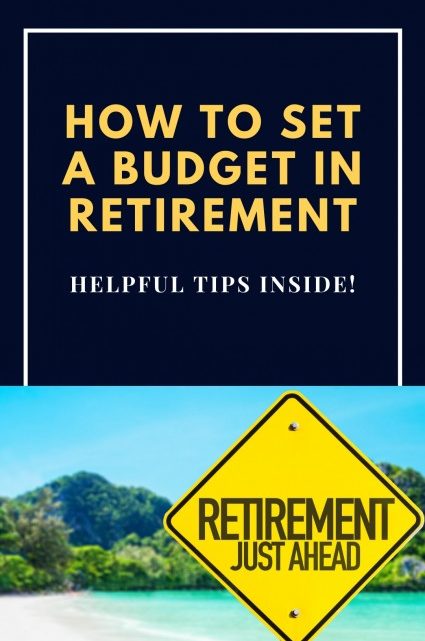What You Should Know About Budgeting When You’re Going to Retire
Do you know how to budget for retirement? With the rising costs of living, housing prices in expensive cities like Boston, New York, Chicago, and others, and even entertainment and food costs soaring, budgeting as a retiree has become not just a helpful habit; it’s an absolute necessity.
Your twilight years should comfortably in comfort while you enjoy the benefits of your many decades of labor, but unfortunately for many of us, the life of work we’ve had does not always add up to a generous superannuation payment.
Government pensions depend on what you qualify for and can mean many retirees are living below the poverty line and struggle week to week to make ends meet. A budget is a fast way for you to plan your life, save money, and prepare for unexpected expenses in the future.
Why is budgeting important as a retiree?
 When we live to paycheck to paycheck, perhaps spending more than we should each payday and then struggling through to the next payment, only to then repeat the cycle, we can quickly end up in debt or living a life that is more of a struggle than needed.
When we live to paycheck to paycheck, perhaps spending more than we should each payday and then struggling through to the next payment, only to then repeat the cycle, we can quickly end up in debt or living a life that is more of a struggle than needed.
Retirees can also run the risk of running out of money from their nest egg up to a decade before they pass on. When this happens, seniors are often forced to move in with family as a dependant, become homeless or struggle to return to the workforce due to their advanced years or limited capabilities.
Creating a budget specific to you, your lifestyle, and your expenses mean you can save money, have scheduled payments, and even slot some entertainment options into your week. With a little bit of preparation, you can stretch your payments even further and minimize the risk of just existing and not really ‘living’ those retirement years you have earned. Pro tip: to get your living expenses nailed down, you can use reports like this one from ABODO to get an idea of what housing might cost in your area and additional reports for your different expenses.
Creating your budget
Calculating your expenses is the first step towards creating your budget. Expenses could be rent or mortgage repayments, recurring bills, groceries, medicines, or anything else that is a necessity to live your life at its baseline each week or month. Take the amount of money you get coming in for the period and minus your expenses for the same period from that amount.
Writing this down or creating a digital spreadsheet is an easy way to make sure you’re calculating the correct amounts. Don’t forget things like credit card repayments, car repayments, insurance installations, and charity donations. This is also a great way to identify where you can trim some unnecessary expenses out of your budget.
Given its the most considerable expense for many, people will often ask themselves, “should I pay off my mortgage?” Everyone’s circumstance is different. If you are having a hard time deciding even after doing online research, you may want to speak to a retirement specialist. There will undoubtedly be pros and cons for paying the loan off early. The resource at Maximum Real Estate Exposure will give you some of the essential considerations to think about.
Establish savings goals
If you’re living on your savings into your old age rather than receiving a pension, you run a much higher risk of running out of money sooner. Establish the exact amount you have in savings, and divide this amount by how long you would like that money to last.
If you’d like your money to last ten years, divide the amount by ten and so forth. If you’d like to save a certain amount of money or to make the amount stretch further, increase the number of years to divide by and start honing in on where you can spend less money each week.
Remember, if you need to consult the experts during retirement, don’t be afraid of the cost. For example, if you’re interested in real estate investing to earn some passive income, it can’t hurt to talk to an agent who might have more insight on this topic. You can also use online resources like this one, to better understand the benefits and drawbacks and real estate or other investments during retirement.
Planning for life – budgeting for your lifestyle and hobbies
The next thing to establish is the fun part – how you’re going to spend your money on enjoying your golden years. Perhaps you’ve always wanted to become a painter, go on a cruise, or take up golf. Researching the costs of the particular hobby or interest you have will give you a good understanding of the average costs you’ll be paying on an ongoing basis.
With the money you have leftover after your baseline expenses are covered, decide on an amount you’d like to spend on recreation and remove this cost for the period from your remaining incoming total. Remember, you can also create a recreation savings fund and put money away each week or month towards a bigger future goal like a vacation or hobby splurge.
Rainy day fund
Adding funds into a ‘Rainy Day Fund’ from your savings or ongoing each pay cycle is a vital addition to your budget. When unexpected expenses arise, you won’t suddenly be hit with a large sum of money that would put a severe dent in your savings. Home repairs and even funeral expenses can cost thousands of dollars and bring added stress to already sticky situations.
Making the most of your retirement years
Planning for the future gives you peace of mind that your needs and wants are going to be met comfortably as you move into your retirement years. Friends and family often have great budget tips, and having those conversations may even lead you to find ways to save more money.
With a small amount of number crunching each month, in addition to finding exciting cash saving alternatives, you’ll always be prepared for the worst-case scenario, leaving you with more time to enjoy your well-earned time off.
All in all, retirement should be one of the most enjoyable time periods of your life. You’ve worked hard for endless years to build up enough funds to kick your feet up and relax. But remember, budgeting is vital. You don’t want to be forced back into the workforce because of undisciplined spending. So, we urge you to move forward and enjoy yourself, but consider real estate as a passive income opportunity during retirement — you never know what can happen!
About the author: The above article on how to budget as a retiree was written by Sam Radbil. Sam is an author at ABODO Apartments, an online apartment marketplace that helps renters find apartments all across the country. ABODO reports on rent rates, the changing of real estate markets and trends within the real estate industry.












No Comment